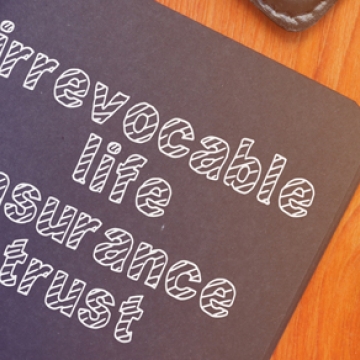Recent News & Blog / Estate Planning
What are the duties of an executor?
A key decision you must make when drafting your estate plan is who to appoint as the executor. Your first inclination may be to name a family member. But this can cause complications. Frequently, a professional advisor whom you trust is a good alternative. Contact the estate planning advisors at SEK with your questions.
A real-life example of why a holographic will isn’t enough
Many states permit holographic wills. But while holographic wills can be cheap and easy to produce, they tend to invite challenges and interfamily conflict. Also, because an attorney doesn’t prepare them, holographic wills tend to be less thorough and often contain ambiguous or unclear language. Contact the estate planning advisors at SEK for more information.
A spendthrift trust can act as a wealth preserver
A spendthrift trust can be an invaluable tool for preserving wealth for your heirs. It prohibits a beneficiary from directly tapping its funds or transferring its rights to someone else. Instead, the trust beneficiary relies on the trustee to provide payments based on the trust’s terms. Contact the CPAs and estate planning advisors at SEK if you have questions regarding a spendthrift trust.
Estate planning for residential real estate with a qualified personal residence trust
If you own your principal residence, it may be beneficial to transfer ownership of your home to a qualified personal residence trust (QPRT). Using a QPRT, you can continue to live in the home for the duration of the trust’s term. When the term ends, the remainder interest passes to designated beneficiaries. Contact the CPAs and estate planning advisors at SEK for more details.
Filing a joint tax return for the year of a spouse’s death can be beneficial
When a person dies, his or her personal representative (called an executor in some states) is responsible for filing an income tax return for the year of death. In some cases, filing jointly can provide tax savings, such as from a lower tax rate, larger tax credits and higher IRA contribution limits. Contact the CPAs and tax advisors at SEK for more information.
Undoing an irrevocable life insurance trust is possible
An irrevocable life insurance trust (ILIT) shields life insurance proceeds from estate tax because the trust, rather than the insured, owns the policy. But what if you have an ILIT that you no longer need? Does its irrevocable nature mean you’re stuck with it forever? Not necessarily. Contact the CPAs and estate planning advisors at SEK for details.
If you’ve inherited an IRA, you need to know about these new final IRS regulations
The IRS has issued final regulations relevant to taxpayers subject to the “10-year rule” for required minimum distributions (RMDs) from inherited IRAs and defined contribution plans, such as 401(k) plans. In a nutshell, the final regs largely adopt proposed regs issued in 2022.
A power of appointment can provide estate planning flexibility
After your death, events may transpire that you couldn’t have reasonably foreseen. To provide some flexibility, consider including a trust provision in your estate plan that provides a designated beneficiary a power of appointment over the trust’s property. The holder of the power of appointment can have the discretion to change distributions from the trust. Contact the CPAs and estate planning advisors at SEK for details.
Contributing to a Roth 401(k) plan may help achieve estate planning goals
When it comes to your 401(k) plan, you may have a choice to make regarding contributions. Should you make them on a pre-tax basis or on an after-tax (Roth) basis? The right answer depends on your current and expected future tax circumstances and the estate planning implications. Contact the CPAs and estate planning advisors at SEK with your questions.
Provide for multiple generations using a dynasty trust
A dynasty trust can preserve substantial amounts of wealth (and potentially shelter it from federal gift, estate and generation-skipping transfer taxes) for generations to come. The trust can be established during your lifetime, as an inter vivos trust, or part of your will as a testamentary trust. Contact the CPAs and estate advisors at SEK for more information.









